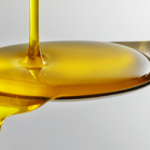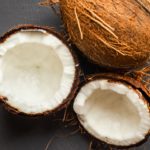The Healing Essential Fatty Acids, Part 6: Daily Requirement

To unfold some of their functions, LA and ALA must first be converted into EFA derivatives, or into prostaglandins. These conversions require vitamins B3, B6 and C and the minerals magnesium and zinc. Other vitamins and minerals may also modify conversion.
This means that a deficiency of any of the above five essential nutrients may mimic the degenerative symptoms of EFA deficiency, and that such a condition, looking like EFA deficiency, could eventually be fatal even if we are getting the EFAs we need for health.
Linoleic acid
Of about 45 known essential nutrients, linoleic acid (LA, 18:2w6) is the one with the highest daily requirement, but the exact amount required each day is still being debated. LA requirement also varies from time to time for the same person. It depends on the level of physical activity and stress, nutritional state, and individual differences.

Because of hormonal differences, males may require more than females. One to two percent of calories (3 to 6 grams per day) is enough to prevent symptoms of deficiency in most healthy adults. An optimum amount might be in the range of 3 to 6% of calories, or 9 to 18 grams (about half an ounce or 1 tablespoon) of LA per day. Obese people and those on diets high in saturated fatty acids and olive oil may require even more.
In animal studies, as much as 28.5% of calories (that would be over 60 grams, or 2 ounces per day) has been given as LA without problems in long-term feedings, as long as enough vitamin E was also included (about 1 part vitamin E for 1500 parts LA). Eighteen grams of LA per day would require less than 30 International Units (IU) of vitamin E. Other nutrients required for LA to properly perform its functions in our body are vitamins C, B3 and B6, and the minerals magnesium and zinc. Vitamin A, or its precursor carotene, is also important. To build optimum health, a nutritional program must include optimum amounts of all essential nutrients, every day.
Alpha-linolenic acid
The optimum amount of alpha-linolenic acid (ALA 18:3w3) needed for health is perhaps between one-fifth and one-half of that of LA, or between 2 and 9 grams (1 or 2 teaspoons) per day. Estimates suggest 2% of daily calories as ALA. Our body’s content of ALA is less than that of LA, usually around 2% of body fat in healthy people.

Nutrients that help ALA perform its functions in our body include antioxidant vitamins, and the minerals and vitamins that have already been listed as necessary for LA functions: vitamins C, B3, and B6, and magnesium and zinc.
An average adult carries a total of about 10 kilograms of body fat. About 10% of that, or 1 kilogram (2.2 pounds) is LA. Vegetarians contain up to 25% of their total body fat as LA. People with degenerative diseases average about 8% of their fat tissue as LA.
ALA at 2% of body fat makes up about 200 grams (half a pound). In our brain, LA and ALA are present in about equal amounts.





